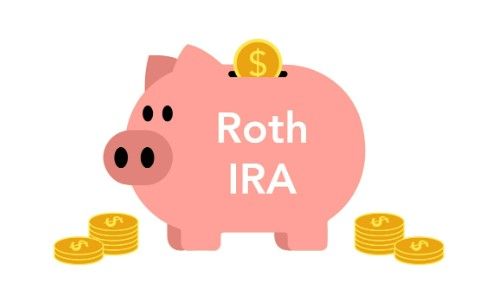7 Keys to Roth IRA
Mary, Team Collaborator • May 15, 2024
How to build your Individual Retirement Account
If you haven’t gotten a Roth IRA started yet, here’s 7 things to know and reasons as to why you should open up one as soon as possible.
Roth IRA’s are not only good for building your own tax free bucket of income, but from a generational wealth building perspective, it’s a great way to pass down tax free income and avoid some of the probate fees that can arise on estates.
Investing in your family and your future with an IRA is like putting gold coins worth great value into your personal piggy bank!
7 Keys to Roth IRA Benefits
- Roth IRA's provide tax free growth for investments inside the account and once withdrawn at retirement age, the income is tax free. This is impactful as tax rates are expected to rise in the future. Having a tax free pool of income will only benefit your family and your business down the line.
- You must have earned income to contribute to a Roth IRA. Passive income alone won't qualify you. There is an income limit as well, once you reach the limit you can no longer make direct contributions. These limits are a) Single - $165,000 b) Married Filing Jointly - $246,000 c) Married Filing Separately - $10,000. Form 8606 must also be filed with your Tax Return if a distribution from a traditional, traditional SEP, or traditional SIMPLE IRA that is subsequently converted to a Roth, Roth SEP, or Roth SIMPLE IRA occurs.
- For low income taxpayers, contributions to a Roth IRA can potentially qualify you for the Saver's Credit. This Credit is available to taxpayers that have income limits that fall below a) Single - $38,250, b) Head of Household - $57,375 c) Married Filing Jointly - $76,500.
- The annual contribution limit is $7,000 if you are under 50 years of age, and $8,000 if you are over 50 years of age. This limit is per person, so a married couple could contribute a total of $14,000 in 2025. With the correct investments, doing this for 30 years will make you a tax free millionaire.
- When you put your money into a Roth account, your money will not be automatically invested in any stock or index fund. You will still need to choose your investment option once the money is in the account to achieve your desired rate of return.
- If you have money in a Traditional IRA and rather it go to a Roth IRA, you can initiate a Roth Conversion, which converts the money from the traditional account over to the Roth account. It is important to consider as well that you will pay taxes and fees on the conversion amount as ordinary income. Roth Conversions can be a great strategy during down markets. Smaller portfolios mean smaller tax bill on the conversion. However, for some individuals and entities in higher tax brackets, or those closer to retirement, this may not be as beneficial if there is a drop in future taxable income.
- Contributions to your Roth IRA can be withdrawn at any time, completely tax free. This is great in the event you need access to capital for whatever reason. Be sure to only take out your contributions and not withdraw any of your gains.

Bookkeeping is the process of recording and summarizing all financial transactions of a business. It includes recording all income and expenses, as well as assets and liabilities. Bookkeeping is important for businesses of all sizes, as it helps to track financial performance, identify areas of improvement, and comply with tax laws.
There are two main types of bookkeeping systems: single-entry and double-entry. Single-entry bookkeeping is a simpler system that only records the total amount of money coming in and going out of a business. Double-entry bookkeeping is a more complex system that records all financial transactions in two accounts: a debit account and a credit account.
Bookkeepers use a variety of tools to track financial transactions, including ledgers, journals, and invoices. Ledgers are used to track the overall financial performance of a business, while journals are used to record individual transactions. Contracts, Receipts and Invoices are used to track sales and purchases.



